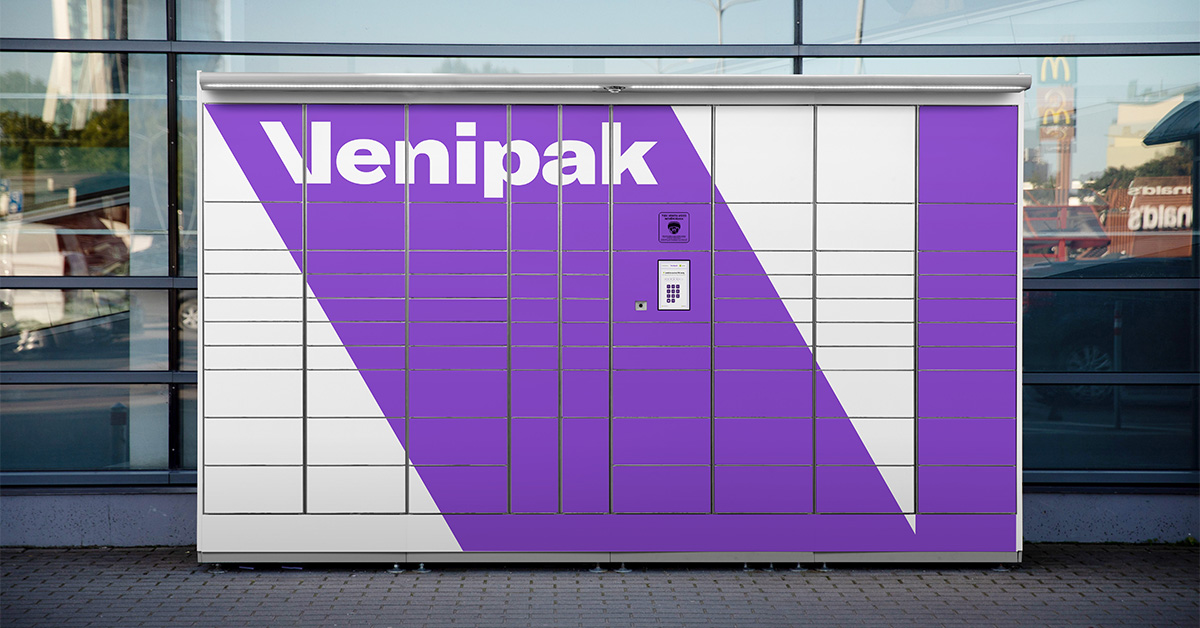Due to consumers‘ favourable attitude towards automated parcel machines, international parcel service Venipak is investing Eur 4M in the expansion of its parcel delivery network. Under this investment plan, 600 new parcel machines will be installed in Lithuania, Latvia, and Estonia.
After thoroughly evaluating consumers’ needs and market trends, international parcel service Venipak confirmed a plan to install 600 new contactless automated parcel machines (APM) in strategically chosen locations in all Baltic states. Currently, 250 APMs are being launched in Lithuania, and 200 in Latvia. The rollout of 150 APM units in Estonia is expected to start after the current wave of expansion of Lithuanian and Latvian networks is finished at the end of 2021.
Total investment into new Venipak APMs under this plan of infrastructure expansion is Eur 4M.
“Shift in consumer behaviour, favouring the purchase of goods online and receiving their orders as close to home as possible was the main factor behind our decision to expand a network of parcel delivery points. Another important factor was the highly positive effect of APMs on the sustainability of last-mile logistics,—says Justas Šablinskas, CEO of Venipak.—We are sure that the return of this investment will be measured not only as numbers in the bottom line but also in better user experience and reduced environmental effect.”
The current wave of Venipak APMs is contactless: the lockers are opened with a QR code that is sent to the client’s smartphone. Such unlocking method not only reduces the time needed to pick the parcel up from 20 to 5 seconds—the innovation also reduces physical contact of humans with surfaces and, accordingly, the chance of spreading infections.
Experts argue that parcel delivery to APMs increases the efficiency of parcel delivery service 3-4 times compared to delivery of individual parcels to consumers’ doors. This delivery method also reduces traffic jams in streets of cities, thus reducing the emission of CO₂ gas. Couriers know the exact locations of APMs and may deliver a larger amount of parcels to one point with easy access.
Trends also show that in 2025 a quarter of all parcels globally will be delivered through APMs. Baltic states are already way ahead of global trends: in 2020, 84% of Estonian, 55% of Lithuanian, and 53% of Latvian e-commerce shoppers considered APMs to be the most attractive method of parcel delivery.
“Rapid expansion of the new innovative APMs are part of our longer-term goal — to expand a network of APMs and special parcel pick-up points at partner shops to at least 2000 locations across the Baltic states in upcoming years”, — explains Šablinskas.
